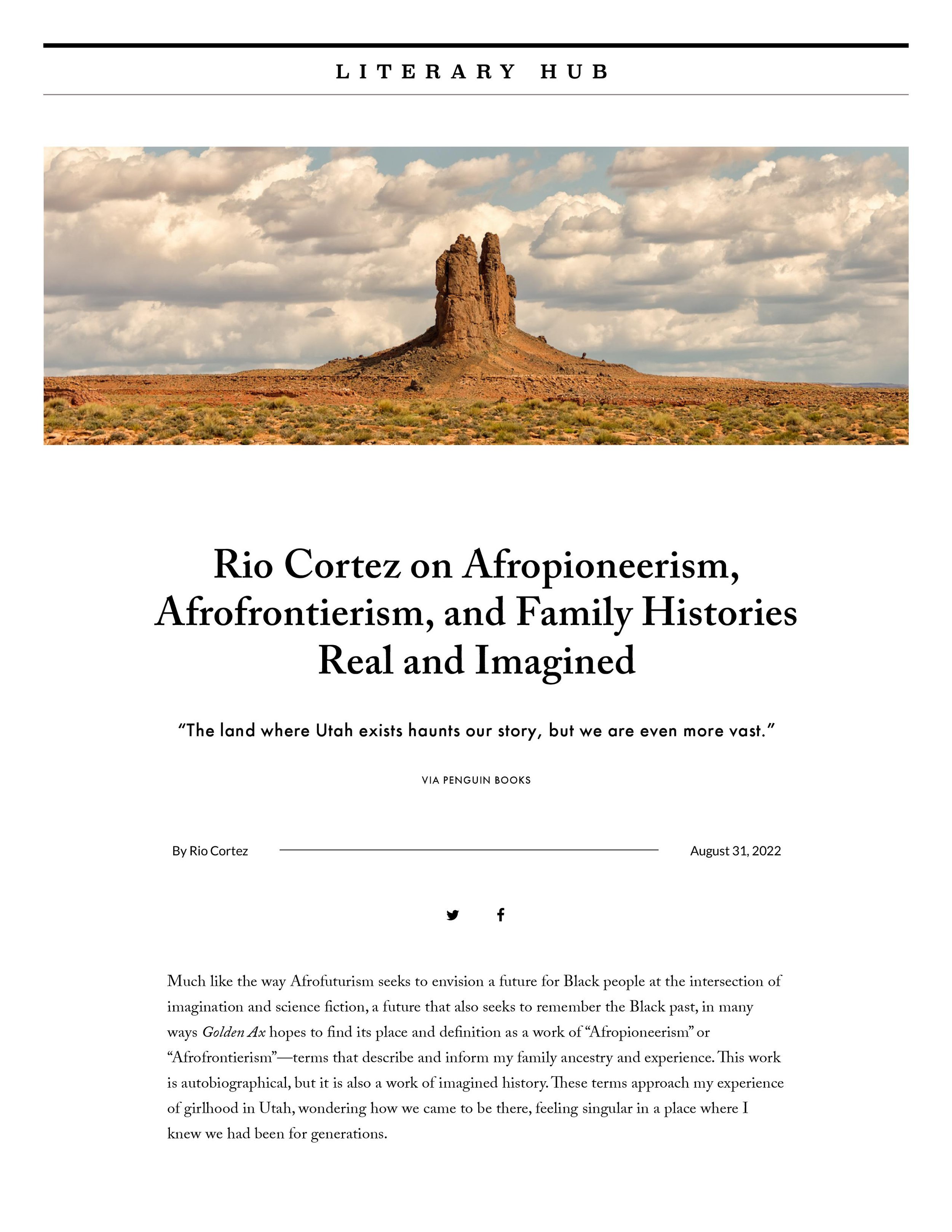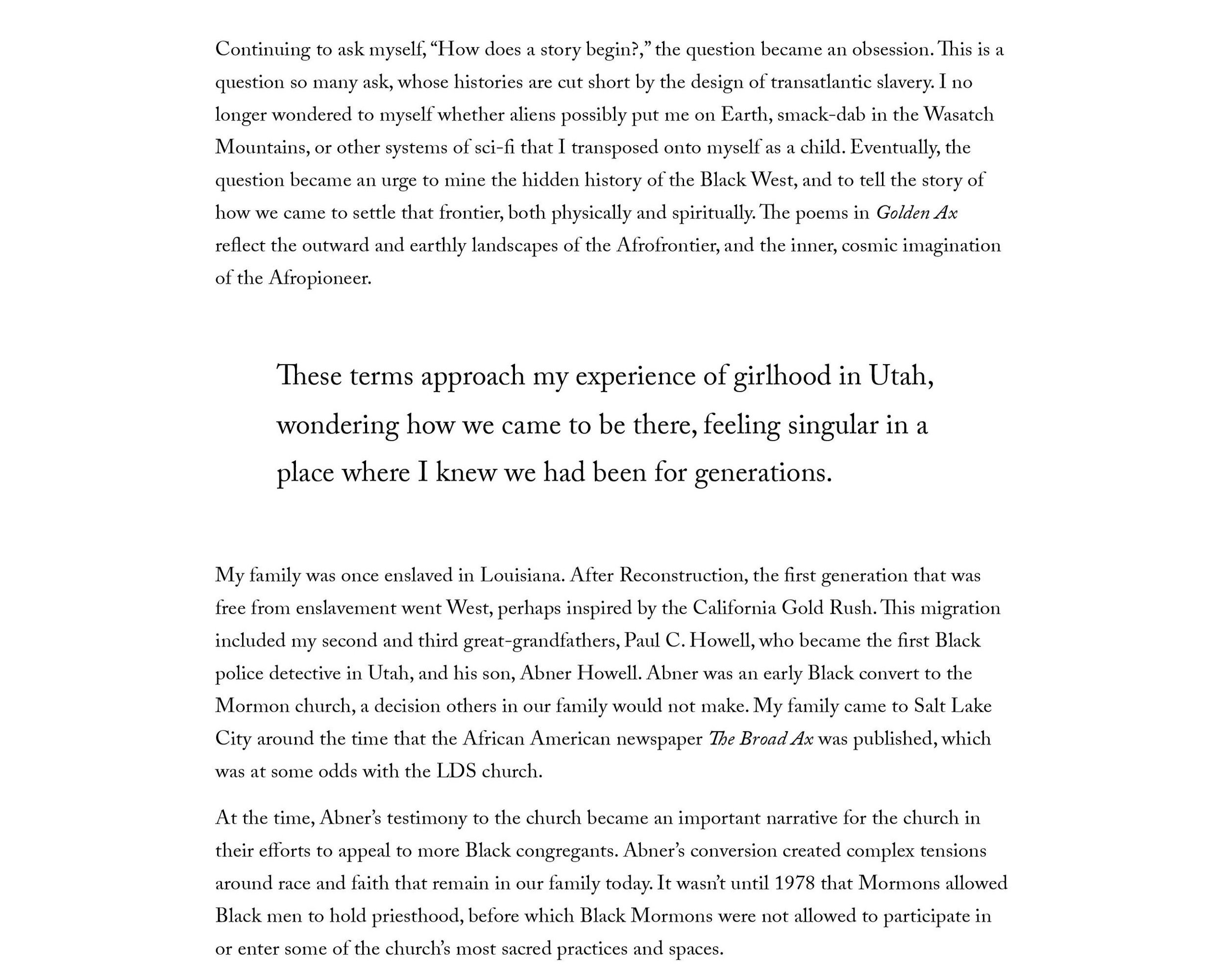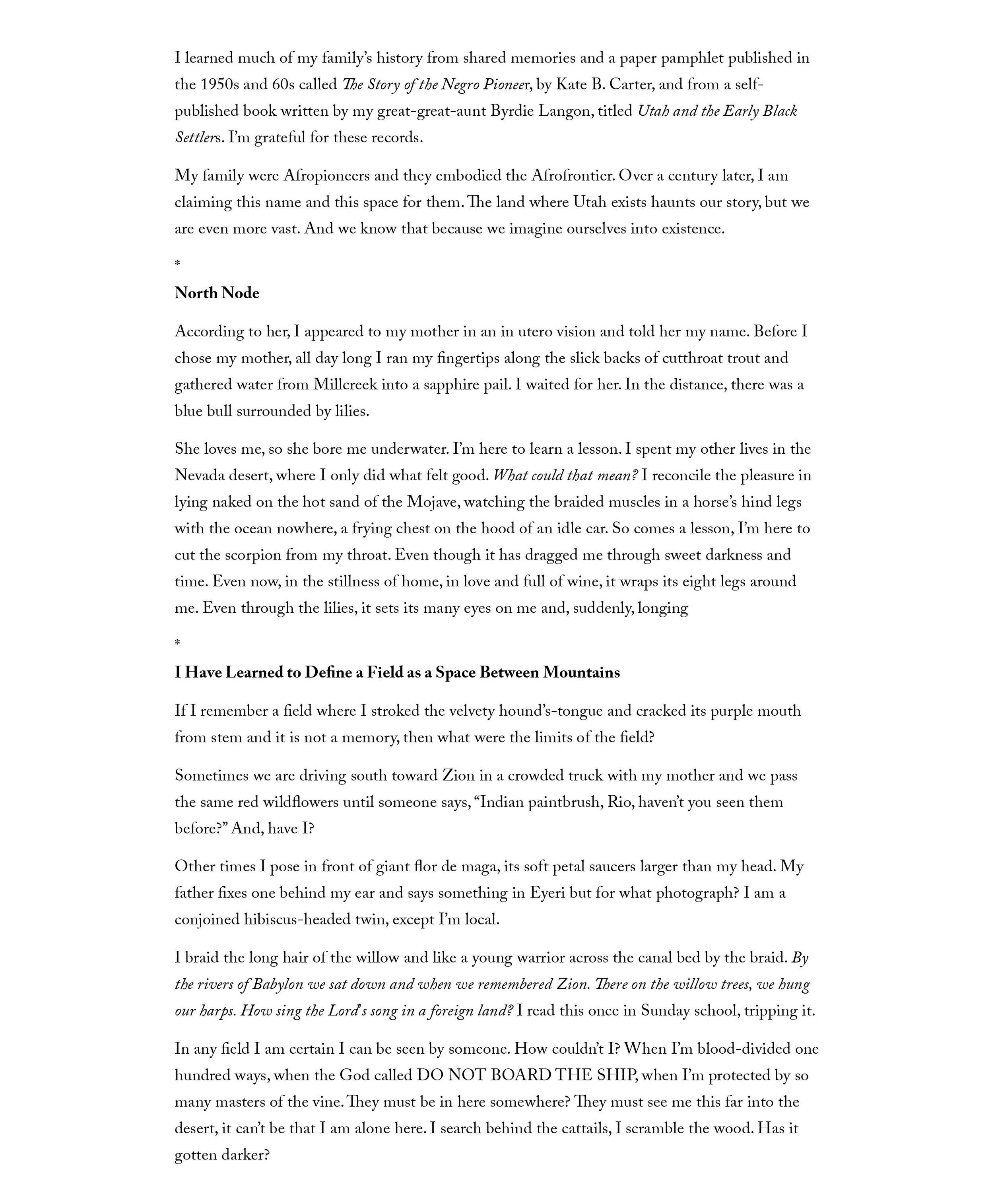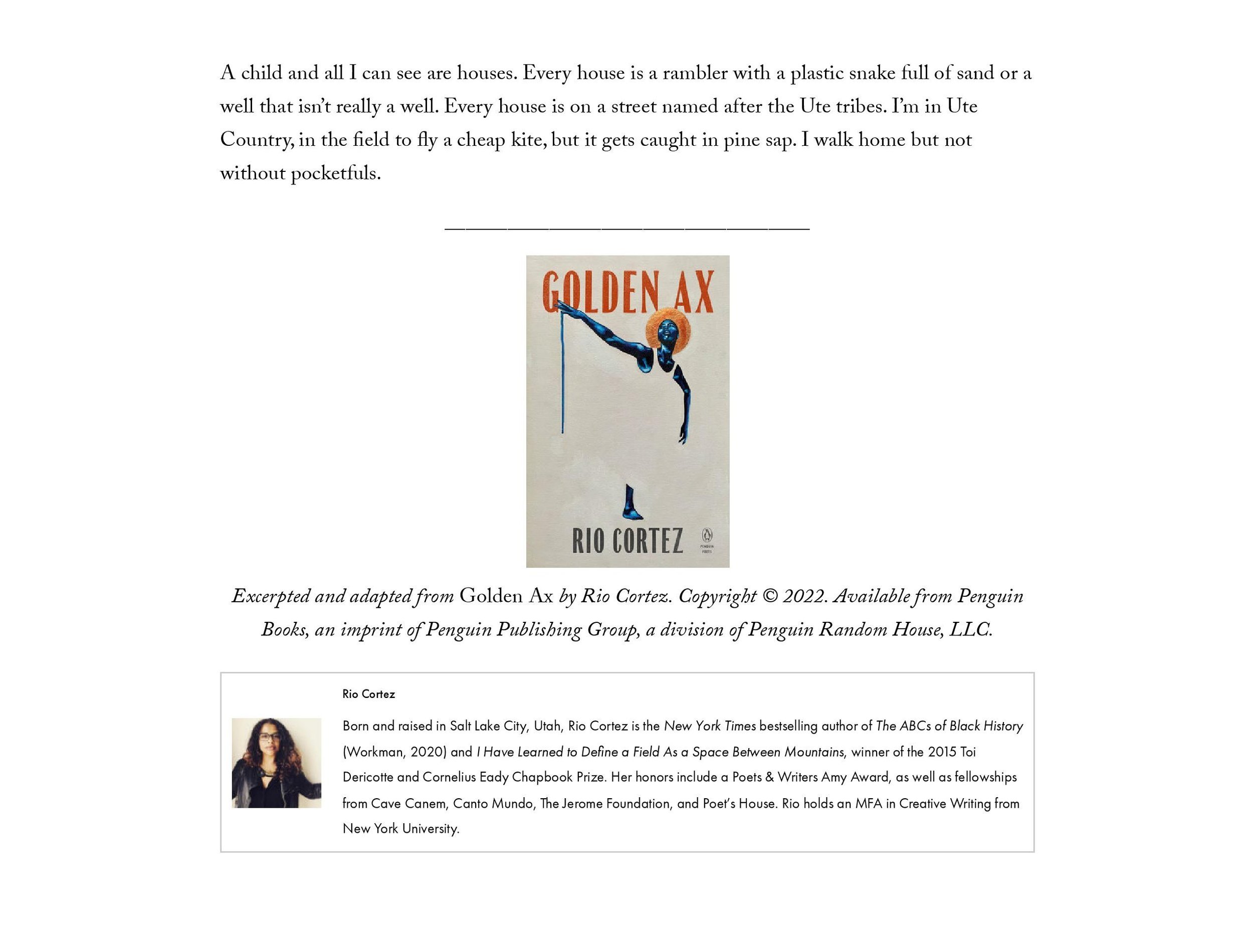Golden Ax by Rio Cortez · Google Books Audiobook preview: https://www.youtube.com/watch?v=UhX1dBh4W4k&t=8s
Much like the way Afrofuturism seeks to envision a future for Black people at the intersection of imagination and science fiction, a future that also seeks to remember the Black past, in many ways Golden Ax hopes to find its place and definition as a work of “Afropioneerism” or “Afrofrontierism”—terms that describe and inform my family ancestry and experience. This work is autobiographical, but it is also a work of imagined history. These terms approach my experience of girlhood in Utah, wondering how we came to be there, feeling singular in a place where I knew we had been for generations.
Continuing to ask myself, “How does a story begin?,” the question became an obsession. This is a question so many ask, whose histories are cut short by the design of transatlantic slavery. I no longer wondered to myself whether aliens possibly put me on Earth, smack-dab in the Wasatch Mountains, or other systems of sci-fi that I transposed onto myself as a child. Eventually, the question became an urge to mine the hidden history of the Black West, and to tell the story of how we came to settle that frontier, both physically and spiritually. The poems in Golden Ax reflect the outward and earthly landscapes of the Afrofrontier, and the inner, cosmic imagination of the Afropioneer.
NOTE: Rio Cortez, Penguin Books and LitHub have validated the word Afrofrontier to be one word without a hyphen; according to Dr. Nelson, it was discussed at length amongst his dissertation committee; it didn’t exist at the time so the hyphen was required.
Links to other articles:
https://www.globeslcc.com/2023/04/24/rio-cortez-golden-ax-poetry-reading-taylorsville-campus/
https://www.shondaland.com/inspire/books/a41002124/rio-cortez-golden-ax/
https://the1a.org/segments/poet-rio-cortez-on-afropioneerism-and-black-settlers-out-west/
https://www.poetryfoundation.org/harriet-books/reviews/158301/golden-ax











